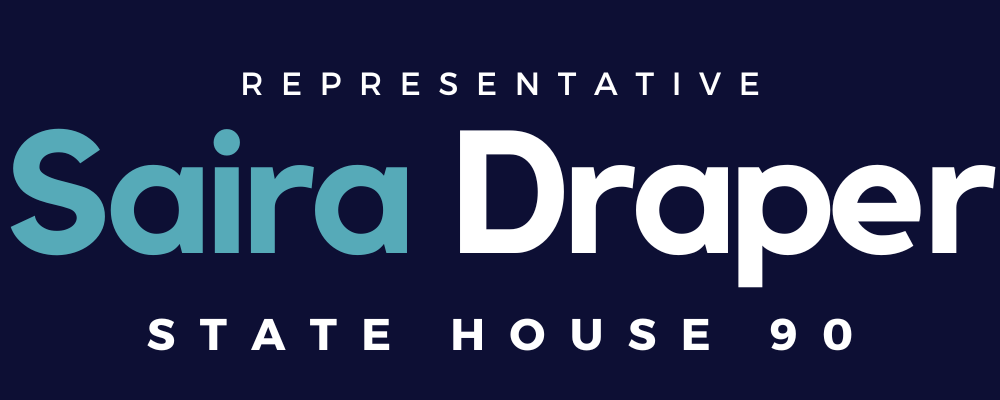All About Runoffs
Legislative Update February 2023
Hi everyone,
If you followed my campaign when I ran for office, you know I am committed to making our elections work better. Why? Because when our elections work, more people can vote. And when people can vote, their values are reflected by those who get elected. This isn’t a partisan issue, it’s a democracy issue.
I told my district that with my background in voting and elections, I was well positioned to advance such issues in the legislature. And I’ve stuck to that promise, introducing a slate of practical election reforms to improve our current system.
In today’s newsletter, I’d like to talk specifically about my Runoff Reform Bill, HB 419, which if adopted, would reduce the number of runoffs we have here in Georgia. Here’s some recent coverage in the AJC, and here’s a short clip from FOX5 Atlanta about what my bill would do.
Georgia has too many elections. We are the only state in the nation to have runoffs after both the primary election and the general election.
What’s worse is that many of our general election runoffs aren’t the result of having multiple viable and popular candidates in the race. Rather, these runoffs after the general election are due to a so-called "spoiler candidate" taking a couple of percentage points, thereby making it difficult for viable candidates to get over 50% of the vote, as required presently by Georgia law.
As just the most recent example, our last statewide runoff for the Georgia Senate had to be re-run because candidate Chase Oliver took 2.1% of the vote, costing Georgia taxpayers millions.
We ran a whole new election because one candidate got 2.1%?!?
Runoff elections results did not change the outcome from the General election.
You probably remember constant TV ads, negative mailers, and being visited by canvassers throughout the 2022 Thanksgiving season. It’s a lot, and 58% of Georgians polled by the AJC said they supported eliminating general election runoffs by declaring whichever candidate receives the most votes the winner.
My bill proposes an easy, straightforward solution to the costly and burdensome runoff problem.
Let’s get into the details, fellow election nerds, shall we?
The Problem
Runoffs are required too frequently. We are being forced to re-administer entire elections simply because so-called “spoiler candidates” are taking a few percentage points.
Why are runoffs a problem? They are costly to taxpayers (the 2020 senate runoffs cost approximately $75 million), result in reduced voter turnout, and place a great burden on our county election offices. Plus, general election runoffs hit during the holiday season when people are traveling, staffing is particularly challenging, and frankly, people don’t want to think about politics.
The Solution
My bill, HB 419 would lower the threshold for triggering a general election runoff from 50% of votes earned to 45% of votes earned. A general election candidate who wins the most number of votes and exceeds the 45% threshold will win the race outright, without need for a runoff.
Lowering the threshold from 50% to 45% accounts for the fact that a so-called "spoiler candidate" may take a few percentage points. That shouldn’t force the state to have to re-run an election.
For 2005 through present, if the 45% threshold had been in place, we would have avoided every single statewide runoff stemming from a regular general election!
What is it about Georgia’s current system that causes so many runoffs?
We have a majority election system. A candidate must not only win the most number of votes, but she must win over 50% of the votes cast to win her election. If no candidate receives over 50% of the vote, the top two candidates proceed to a runoff.
There are no runoffs for contests between two candidates, but when there are more than two candidates, a runoff is a possibility, especially in tight, statewide races.
Georgia is the only state in the nation that requires a candidate to receive a majority of the vote during both the primary and the runoff– allowing for the possibility of a primary, primary run-off, general election, and general election runoff– all in the same election cycle!
How do you feel about RCV?
I'd be interested to study how RCV could work here. The devil is truly in the details, though. RCV will require an overhaul or our system and our tabulation methods. The kind of RCV we adopt (yes, there are multiple kinds), ballot design, instructions, and how we educate voters is really going to matter.
What HB 419 does
It allows a general election candidate who earns the highest number of votes and who earns over 45% of the vote to win. If no candidate receives over 45% of the vote, the top two vote getters proceed to a runoff.
It’s insurance against the so-called "spoiler candidate" forcing us to re-run an election.
What HB 419 does NOT do
My bill does not change how our primaries are conducted. Often in primaries we see three, four, or even more viable candidates running in the same race. It does not impact how special elections are conducted. It also does not mandate how municipalities must conduct their elections. It only impacts general elections.
Will eliminating runoffs give one party an advantage over the other?
Good policy is not partisan. While evidence is limited, the evidence we do have does not suggest that one party would benefit over the other if we were to adopt HB 419.
There have been eight runoff elections stemming from regular general elections in Georgia since 2005. We reviewed the numbers for all of them. The major takeaways are as follows:
For each election, a winner would have been declared without a runoff had a 45% threshold been in place.
For a majority of the elections (5 of 8), the candidate who received the most votes in the general election also received the most votes in the runoff (i.e., outcome would not have changed had there not been a runoff).
In the three elections where the candidate who received the most votes did change between general and runoff (2006 PSC race, 2008 PSC race, and 2020 Senate race), one political party did not clearly benefit from the fact there was a runoff. In fact, the winner flipped both from R to D, and from D to R.
Turnout always decreased from general election to runoff, sometimes drastically.
So what happens next?
HB 419 has been assigned to the House Government Affairs Committee. It’s not guaranteed to receive a hearing, however. Reach out to members of the committee and House Leadership, and let them know why you think HB 419 deserves a hearing. At the very least, the General Assembly needs to be thinking about how to deal with our runoff problem that is causing headaches over the holidays and costing taxpayers millions.
As always, I love to hear your thoughts. The best way to contact me is by responding to this newsletter or using the contact form on my website.
In service,
Questions? Concerns? Need Help?
There are several ways you can share your concerns, request assistance, or let me know about activities in our neighborhoods.
The best way to get in touch is through the contact us form on my website. But, you can also reach me by calling the office (404-656-0265), sending an email to saira.draper@house.ga.gov, or visiting the Capitol. My office is 604-D in the Coverdell Legislative Office Building across the street from the south side of the Capitol.
For more frequent updates, please follow me on social media (links at bottom).
HD90 Spotlight
Our people make our community great. And I want to spread the good news.
If you know a person, business, or organization in HD90 that is doing amazing things, please let me know. We'll feature them in a future installment of the Draper Paper.







